壁垒®|Killing Eggs Is Key Approach To Control Nematodes
Release time:
2021-09-26
Root-knot nematodes overwinter mainly with eggs and females.
Infection Circle of Root-knot Nematode
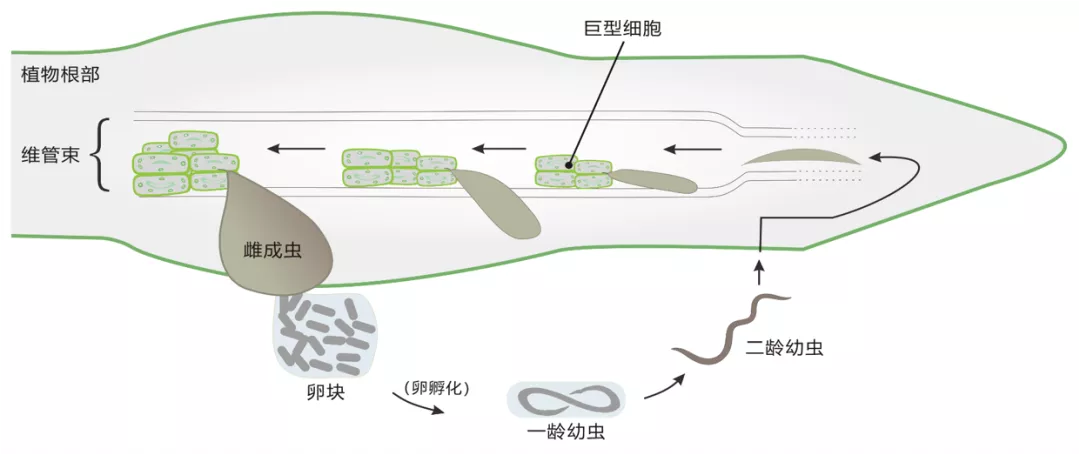
Root-knot nematodes overwinter mainly with eggs and females. When the environmental conditions are suitable, the eggs develop into the 1st instar larvae in the egg sac. After molting, the 2nd instar larvae break the egg shell and move in the soil. They invade young roots of the plant, harm the roots between the root bark and the middle column, and stimulate the tissue to form irregular root nodules.
Only the 2nd instar larvae of root knot nematode (J2S) have the ability to infect roots. J2S develop in the roots and undergo three molts before become adults. In most cases, the males leave the root system and the females reproduce parthenogenetically by mitosis.
Root-knot nematodes retain in the soil mostly in the form of eggs or J2s. When the external conditions are suitable, J2s will launch a new round of invasion.
Therefore, root-knot nematodes need to be controlled as soon as possible. Both prevention and control of root-knot nematodes should be carried out when transplanting or in advance, with emphasis against eggs and the 2nd instar larvae. The whole life cycle of root-knot nematode starts from eggs which are produced by females. When laying eggs, females will secrete gelatinous media to gather the eggs together to form egg sac. Moreover, the females can lay eggs continuously for 2-3 months, so the development stage of eggs in the same egg sac is not exactly the same. An egg sac generally contains hundreds or even thousands of eggs. If the conditions are suitable, the eggs may begin to develop after a few hours of being laid and start repeated infection cycles. Therefore, controlling the nematodes without killing eggs is to bury hidden dangers.
壁垒® (Bacillus thuringiensis HAN-055 20billion CFU/g), Kernel's new product launched in 2021, is the first registered microbial product containing patented Bt strain to control root-knot nematodes in China, which has excellent inhibition and killing effect on nematode eggs.

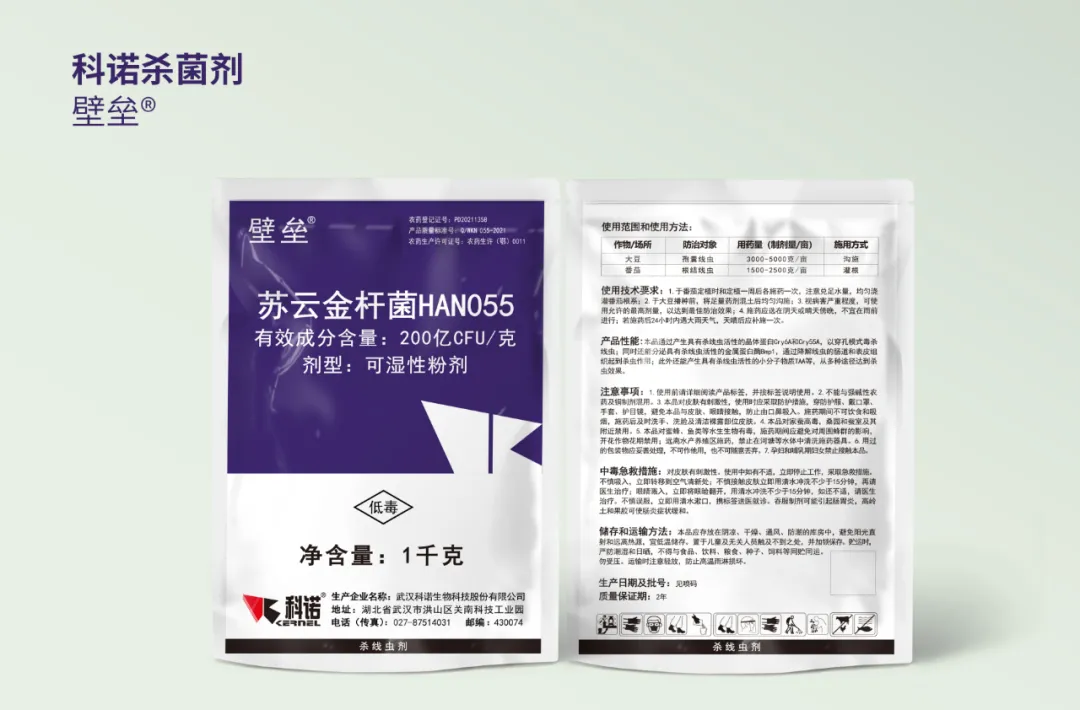
We tested the inhibition and killing effects of 壁垒® by in vitro bioassay on egg hatching and embryo development in laboratory.
Test Procedure of Determination of Root-Knot Nematode Eggs’ Activity
Collect the infested root and wash it.
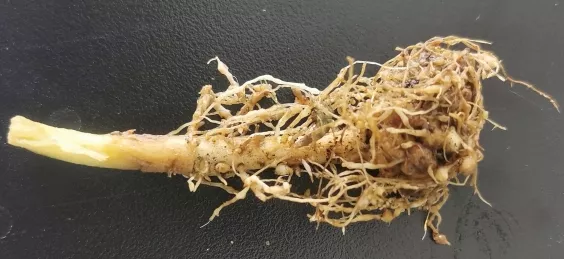
Shred root.
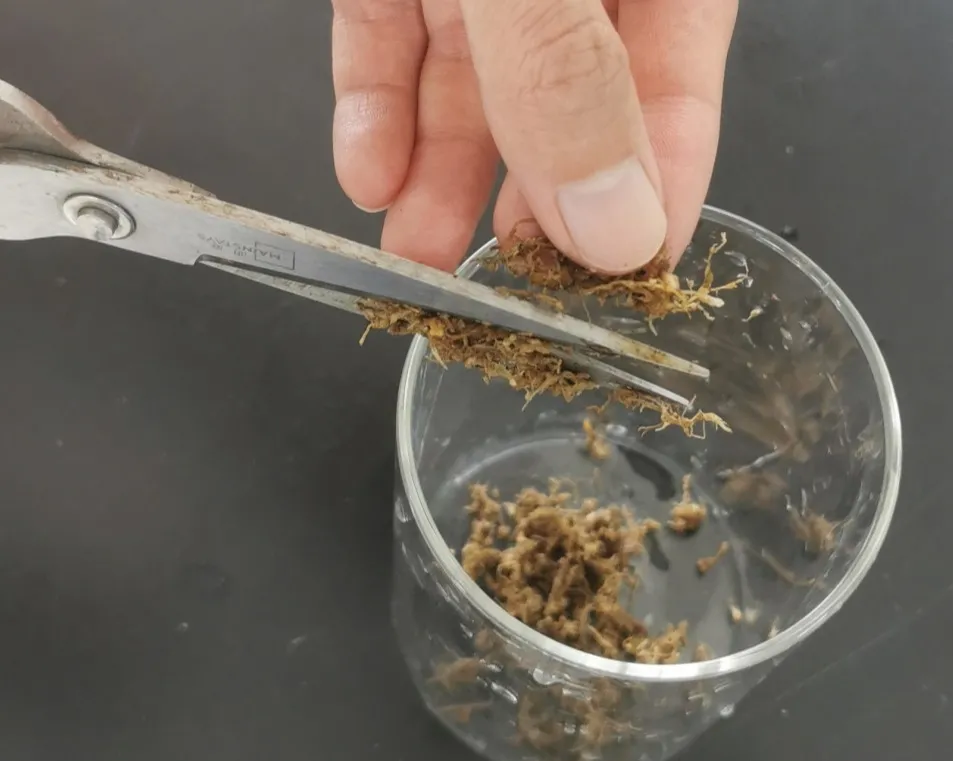
Add solvent and stir to lyse plant cells
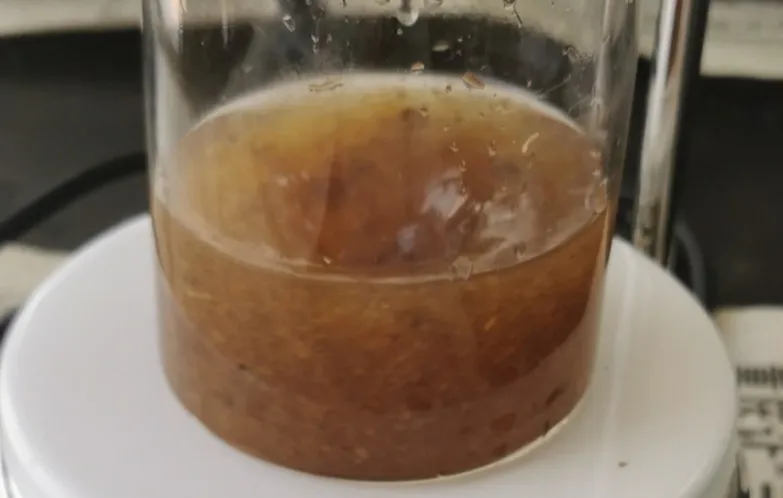
Rinse and sieve to obtain nematode egg suspension
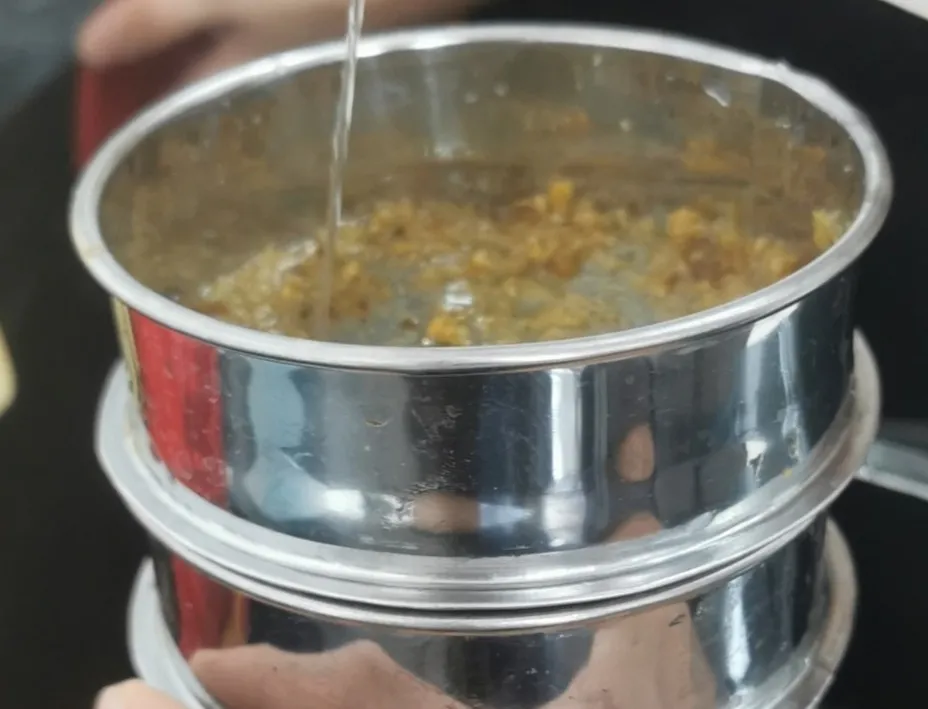
The egg suspension was treated with different test items according to the recommended dosage.
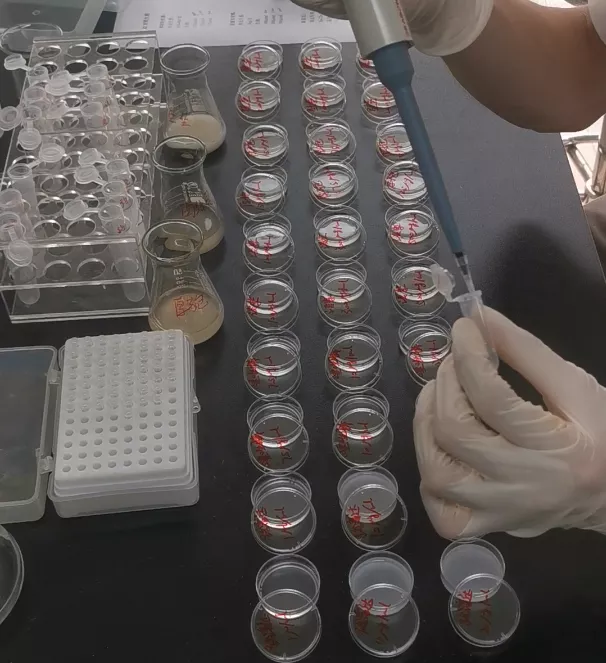
Results, after 144 hours treatment
The eggs hatched well in control (water)
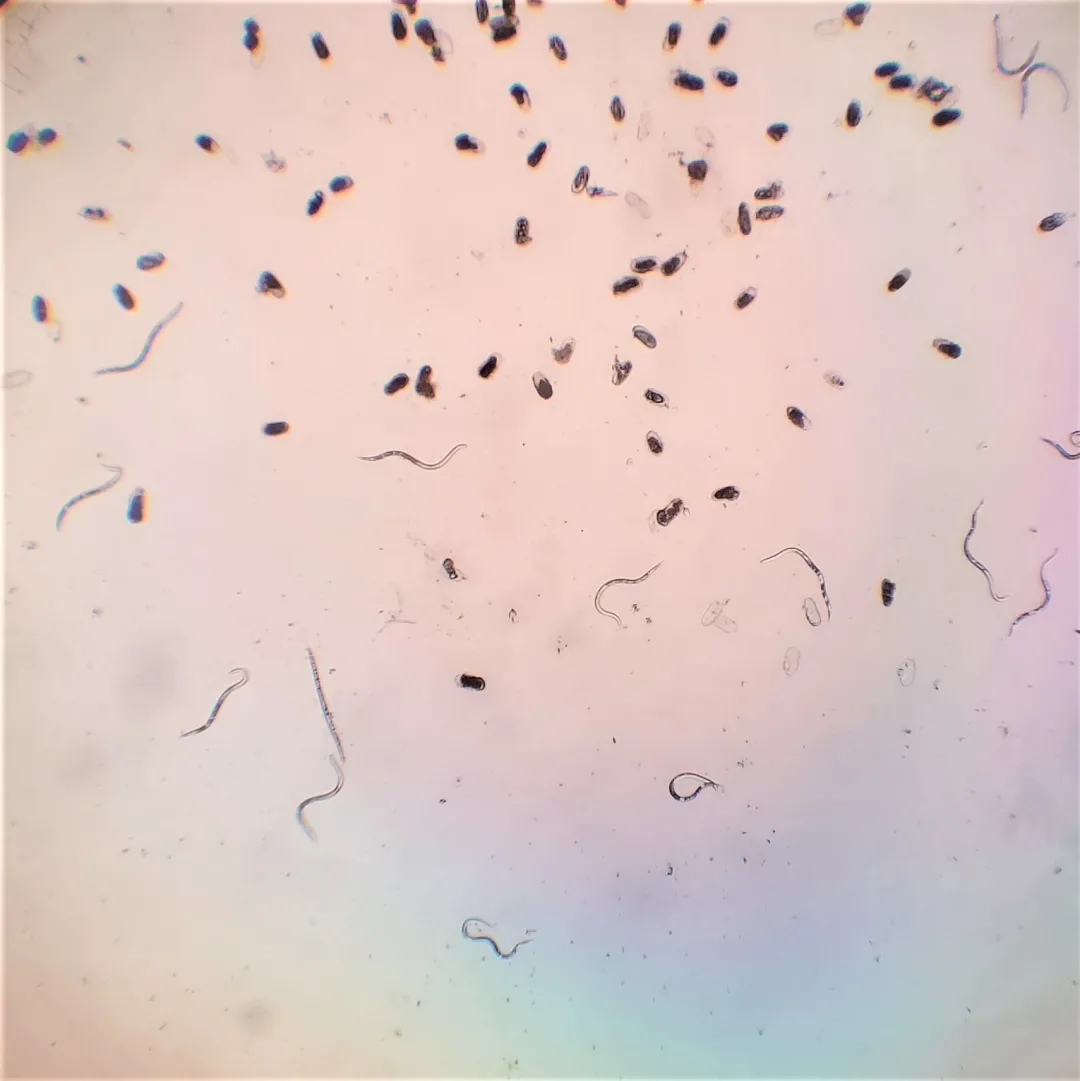
Treated by壁垒®, the eggs rarely hatched
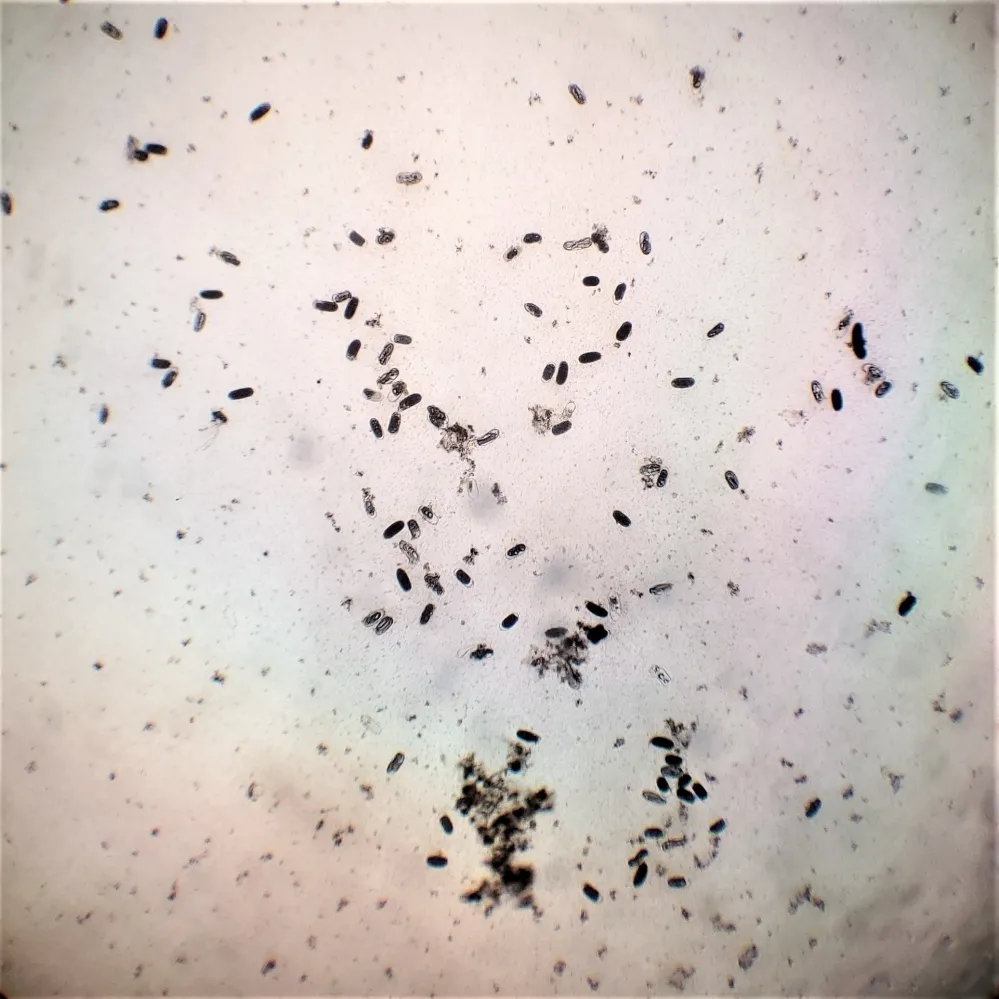
In the treatment of Paecilomyces lilacinus 200 million CFU/g, a small number of eggs were parasitized, and part of eggs hatched
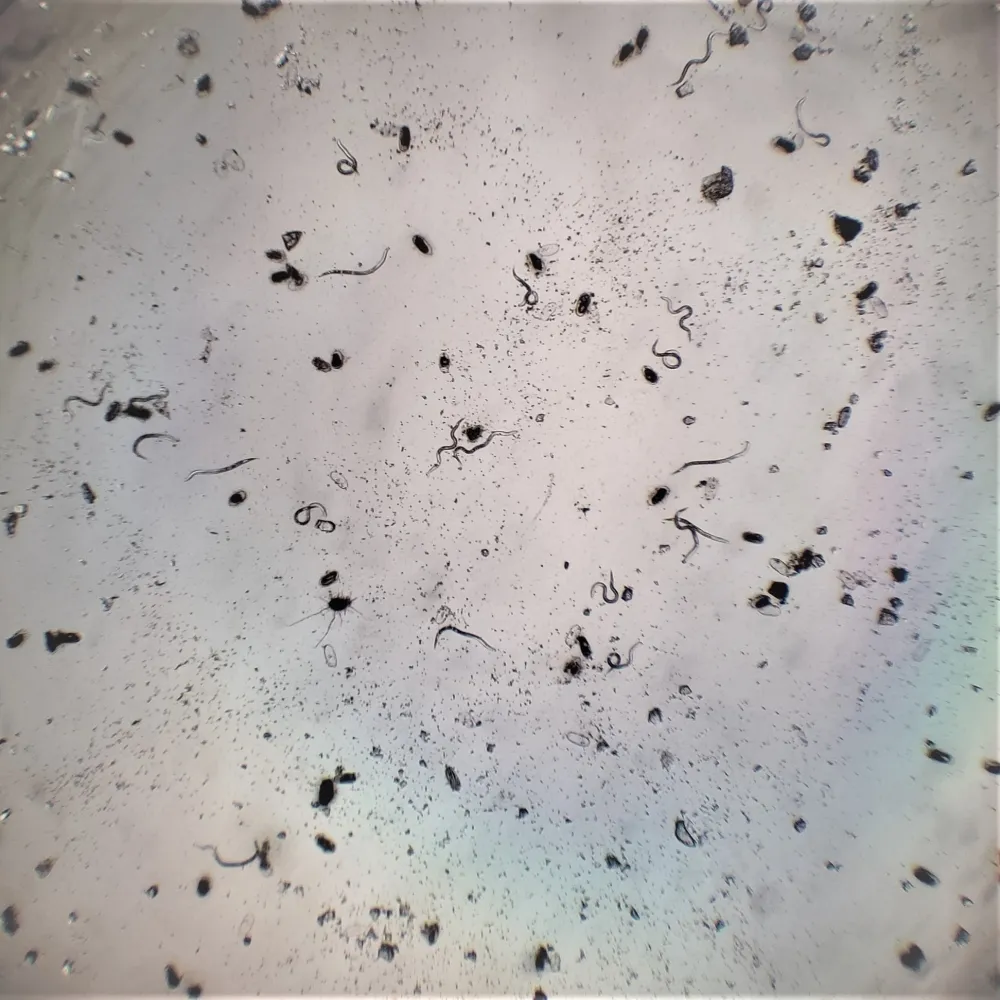
Part of eggs hatched in the treatment of Verticillium chlamydosporium 2.5 billion CFU/g
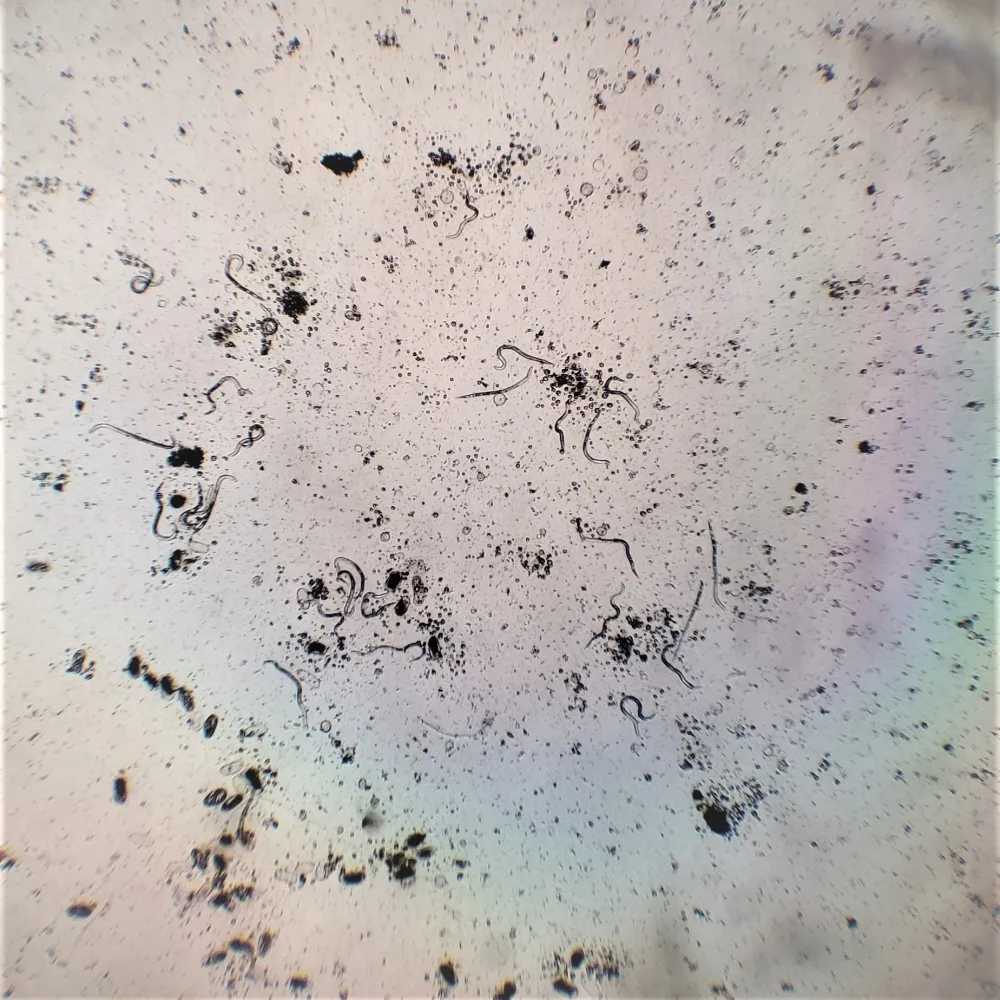
Eggs hatched, but the larvae were killed by Fluopyram
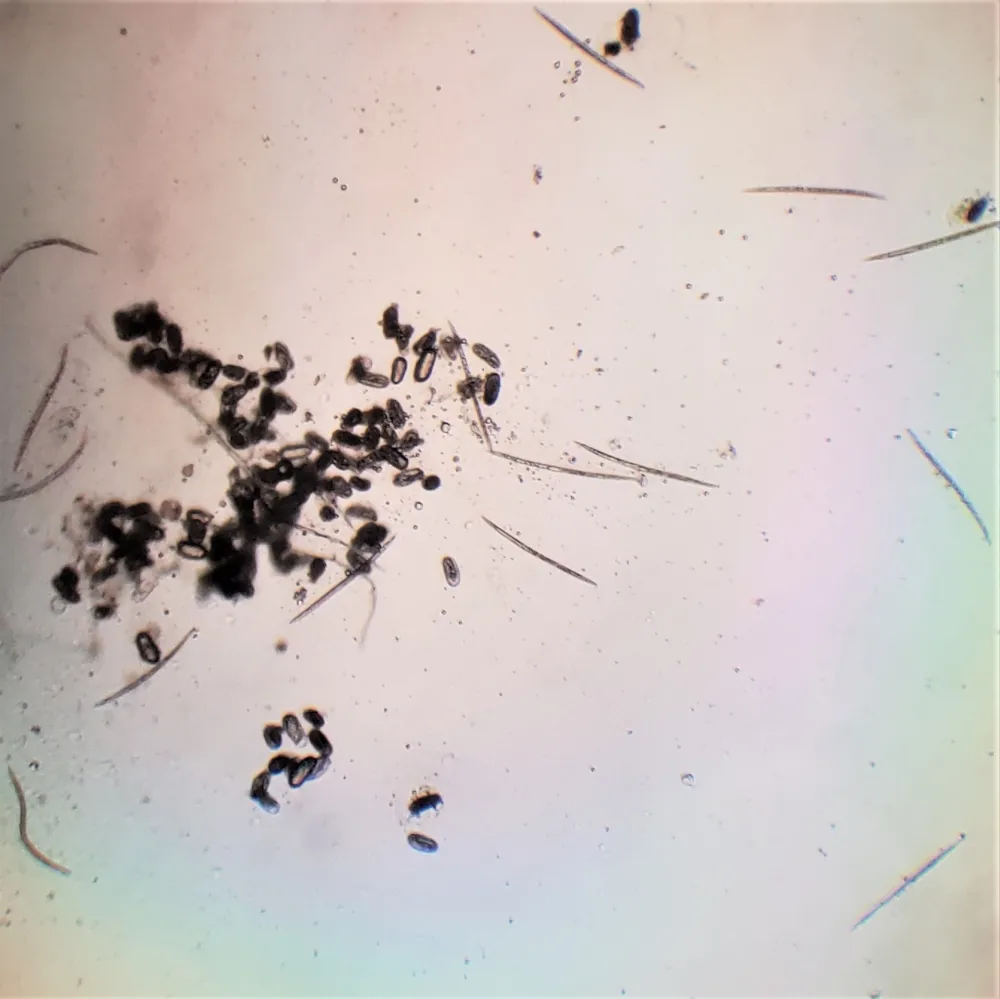
Eggs hatched, but the larvae were killed by Fosthiazate
(Due to the formulation type of Fosthiazate, the optical microscope cannot image clearly)
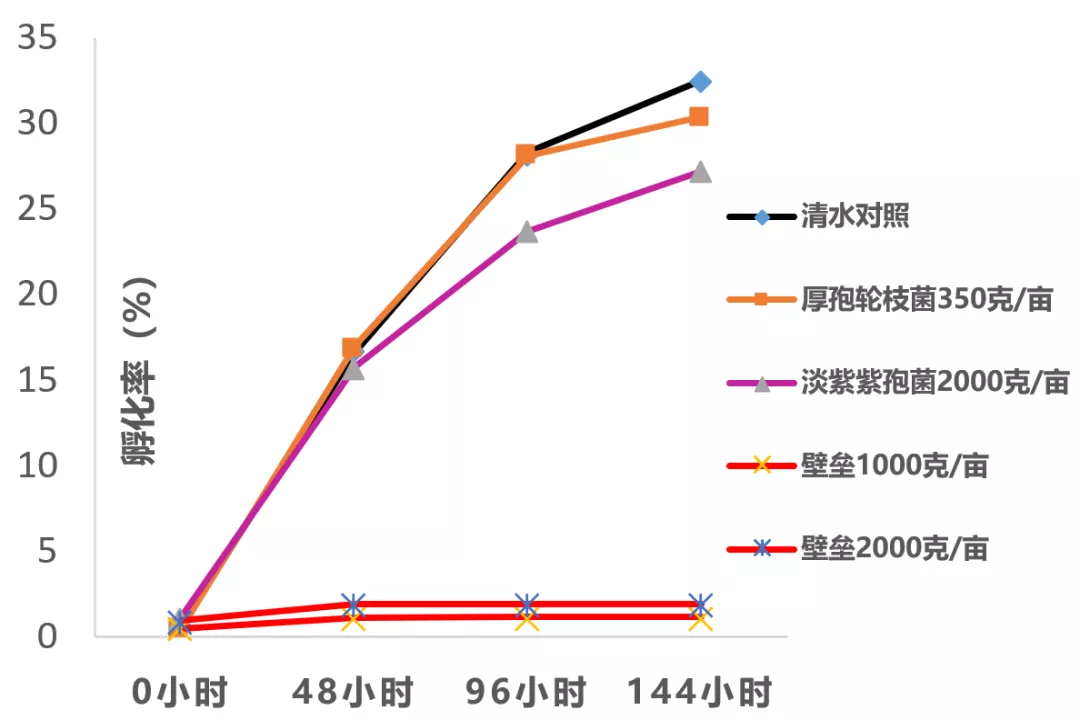
(Test result was responsible for this indoor bioassay. Because the hatching rate of nematode eggs is affected by many factors such as ambient temperature and pH value, this data is only for reference)
Thus, 壁垒® has an excellent killing effect on nematode eggs.
Mechanism of egg killing
During fermentation, 壁垒® can produce Chitinase and small molecule active substance TAA which has egg killing activity. These substances can degrade the egg shell of nematode, inhibit the metabolism of enzymes and destroy its embryonic development.
The figure below shows, after treated by 壁垒®, the surface and inner contents of nematode eggs were damaged. The eggs stopped development.
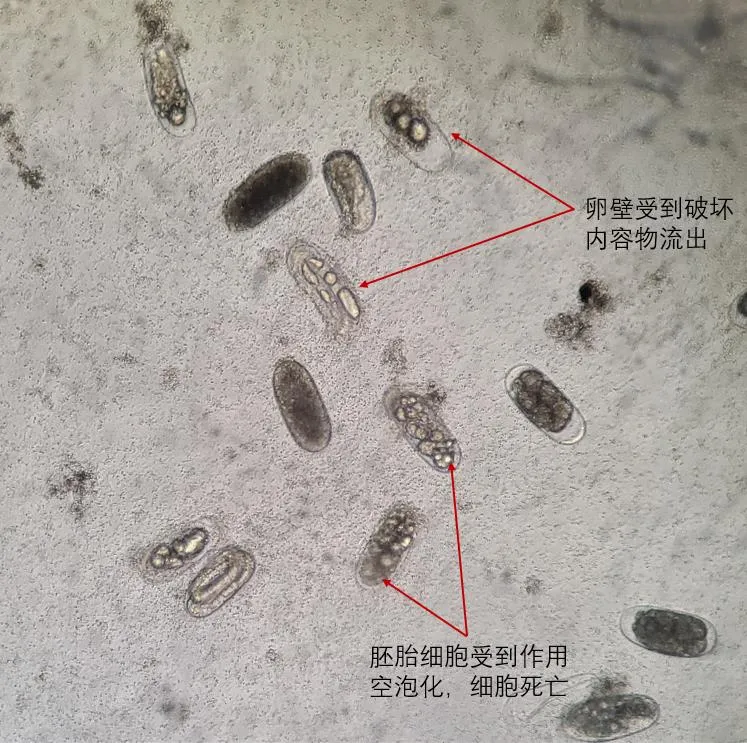
The following figure shows the normal developing eggs in control (water)
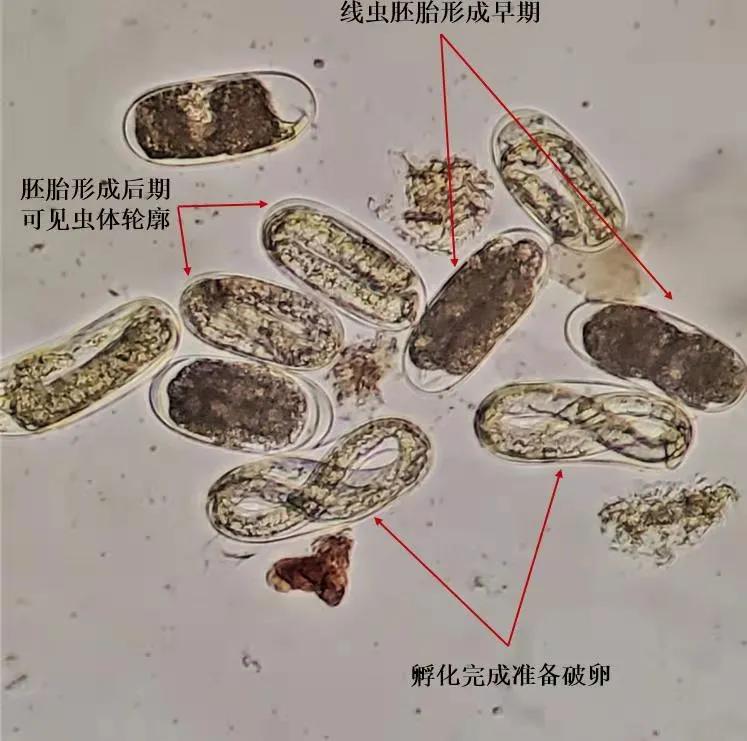
Application of 壁垒®
壁垒® has quick effect on nematodes and flexible use methods, which can control nematodes, promote root development and activate soil.
It can be used alone to kill both eggs and larvae, quickly reduce the number of nematodes in soil, nourish and protect roots development, activate the soil, continuously improve the soil microenvironment and control the harm of nematodes. It can also be mixed with chemical pesticides to make up for the short board of egg controlling by chemical agents, delay resistance, reduce usage of chemicals and increase efficacy for achieving the effect of 1 + 1 > 2.

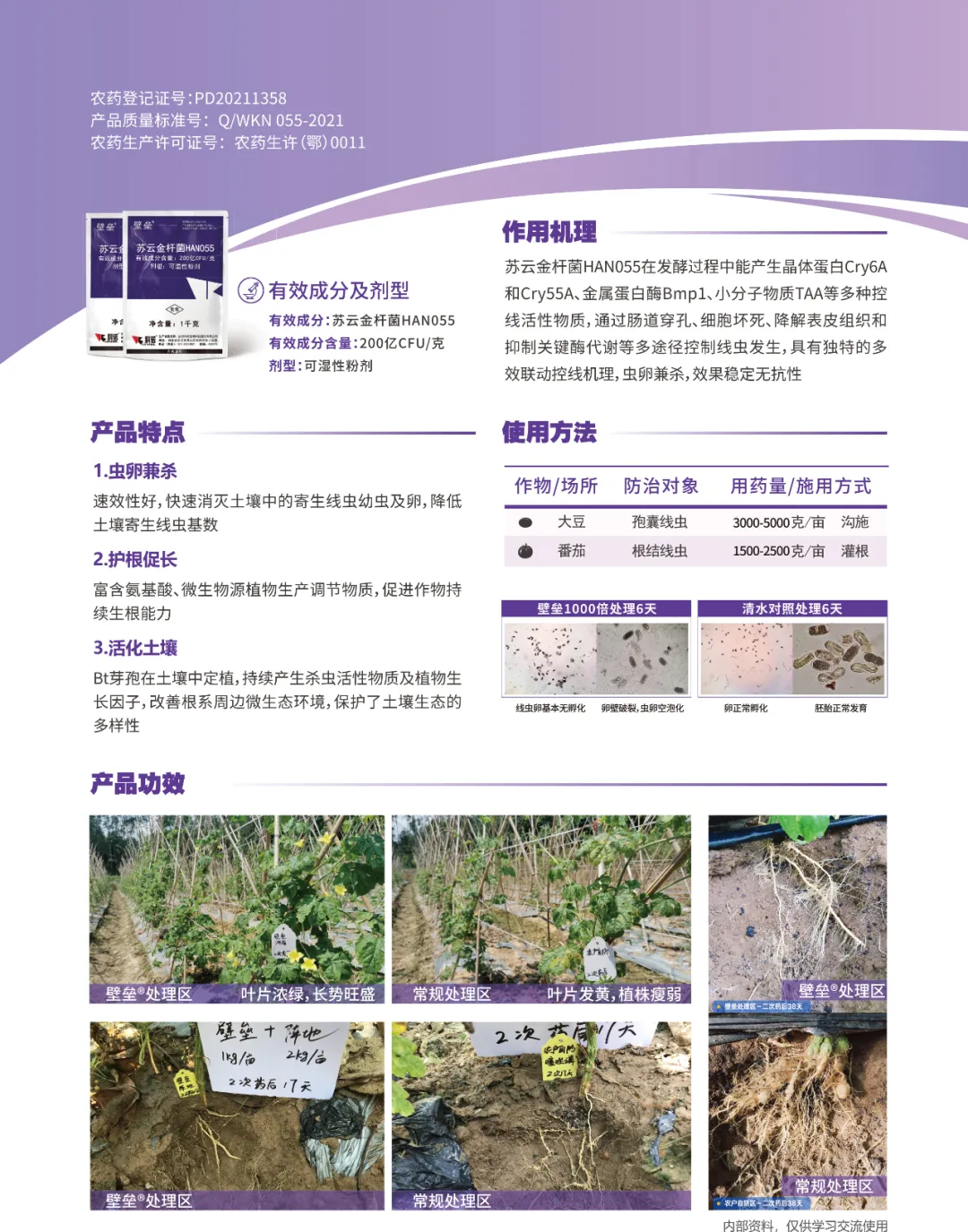
More Blog
The Kernel Microbiological Class (phase II) Ended Perfectly on 31st Oct 2021
On Oct 31st, the two-day Kernel Microbiological Class (Phase II) ended perfectly.
2021-11-02
壁垒®|Killing Eggs Is Key Approach To Control Nematodes
Root-knot nematodes overwinter mainly with eggs and females.
2021-09-26
科微健®|Thriving Roots Bring Bumper Harvest of Grape
In northernChina, greenhouse grape planting has the characteristics of large area
2021-06-11


